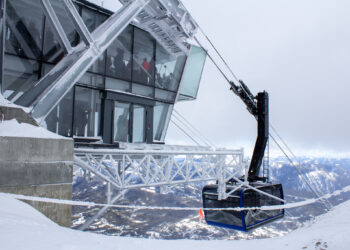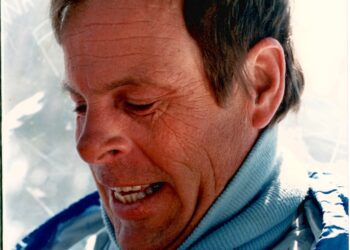‘Penny for Housing’ brings turmoil to resort tax meetings
By Tyler Allen EBS Managing Editor
BIG SKY – Affordable workforce housing has been the No. 1 issue in this community for years and in January it came to a head in the Big Sky Resort Area District boardroom.
The BSRAD tax board met on the three separate occasions during the month, on the fourth, 19th and 27th, drawing more public attendance and comment than any meeting in recent memory.
In contention is a legislative effort to pass a “Penny for Housing” bill. On Jan. 27 the board voted to move forward with lobbying for the bill, which would allow resort areas and communities in Montana to let voters decide on raising their tax up to 1 percent for “workforce housing and related needs.” State law currently caps resort tax at 3 percent.
In the 2015 Montana Legislature, a similar bill failed in a 25-25 tie in the Senate. As BSRAD attorney Mona Jamison noted in a Dec. 12 conference call with the board, the 2017 Legislature is more conservative and tax-averse than its predecessor, and the bill could be facing an uphill battle—that already has started here in Big Sky. BSRAD board member Kevin Germain estimates it has a 50 percent chance of passing.
At the Jan. 4 resort tax meeting, Big Sky Resort General Manager Taylor Middleton voiced his opposition to the 1-percent increase. He said existing resort tax revenue is available for affordable housing; the board could look to services not currently being taxed, like membership dues to private clubs including the Yellowstone Club; and that existing BSRAD collections have increased by 13 percent over the past five years.
Middleton also suggested a real estate transfer tax could be used—though the board stated such a tax is unconstitutional in Montana—and said resort tax already funded a $1 million project for affordable housing.
In June, the BSRAD board appropriated $1.05 million to the Big Sky Community Housing Trust for its first project on the Bough Big Sky Community Housing Subdivision, due to break ground in March. Those dollars were appropriated in part from the BSRAD sinking fund.
The following two January meetings were also held before a packed boardroom with impassioned and extensive public comment from those both for and against the legislative action. Visit facebook.com/explorebigsky to view video of those meetings.
“I thought there would be more vocal opposition than there actually was [at the January meetings],” said BSRAD board member Ginna Hermann in a Feb. 1 interview. “We’ve met with many of the stakeholders, both pro and con, to help us understand their perspectives. Individually stakeholders did reach out to tax board members.”
Resort tax board members are legally allowed to meet with stakeholders individually, and often do leading up to the appropriations process. In her eight years on the board, Hermann said she’s never seen such community interest in the resort tax process as the January meetings generated—outside of the annual Q-and-A and appropriations forums.
The board voted 3-2 on a motion to continue the “Penny for Housing” lobbying effort on Jan. 27, with Mike Scholz, Kevin Germain and Hermann in favor, and Jamey Kabisch and Heather Budd in opposition.
In a Feb. 1 interview, Budd said she was opposed because she feels that resort tax can’t solve this problem on its own. She also cited the Big Sky Community Housing Trust project as a good use of funds to address affordable housing.
“I feel the Bough parcel is really good example of a private donor, with a developer building it with low fees, and resort tax coming in with the last million, not the first million,” she said.
Budd added she’s also talked to a number of small business owners and retailers who fear the tax increase would put them at more of a disadvantage to Bozeman and online retailers, which don’t pay the resort tax. She is especially concerned about those small business owners that own their own housing for employees and, “shouldn’t bear the brunt of this.”
Additionally, she cited her constituency. “I also have to represent the people that voted for me, and a lot of people are coming to me that are against [the tax increase].
“We’re not a community working on this together right now,” she added.
When asked to respond to Budd’s concerns, Scholz said he understands but cited the 7 percent lodging tax that Big Sky hotels collect—4 percent earmarked for advertising by the state—on top of the 3 percent resort tax.
“This is about the up to 1 percent,” Sholz said. “I haven’t found a retailer yet that hasn’t said the 3 percent has made their lives better. The 3 percent has been advantageous for all of us in regards to how the resort has developed.”
He added that people should separate the 1 percent from the 3 percent tax that’s already being collected. For Scholz, it’s also a legacy issue for Big Sky’s future.
He said increasing the tax by 1 percent so people who work in this rural resort town have the opportunity to live here, and participate in the community, is much more advantageous than the added cost incurred.
Middleton said in a Feb. 1 email to EBS that, “Big Sky Resort is a supporter of affordable workforce housing, both projects that we do ourselves with our own funding, and those done by and for the community. The Resort Tax is currently funding affordable housing, as evidenced by a $1 million allocation this year alone. A new law is unnecessary to create affordable housing solutions.”
He cited a recent survey by the Big Sky Chamber of Commerce that found 39 percent of respondents were opposed to the 1-percent increase, despite “I am in favor” of the legislation being pre-checked. According to chamber interim CEO Britt Ide, that was a technical glitch in the online survey.
“Big Sky Resort was one of the original supporters of resort tax legislation over 20 years ago,” Middleton said. “Back then, I testified before the Legislature in support of collecting a resort tax for the betterment of my community. This time, alongside many other community members, I’ll be testifying against a tax increase because it’s unnecessary.”
He added the resort currently owns 450 seasonal workforce-housing beds and have another 200 “shovel ready.”
“None of the [current] resort tax can be specified for workforce housing, we’re looking for the ability to actually target dollars for workforce housing,” Hermann said. “There would be a lot of study and research before a vote went to the public … nothing would be done in a vacuum.”
As of EBS press time on Feb. 1, the resort tax board had spent $36,500 on the lobbying effort—including defensive lobbying by Jamison—of a projected $55,000 if the effort is successful. The next Big Sky Resort Area Tax Board meeting is Feb. 8 at 5 p.m.













